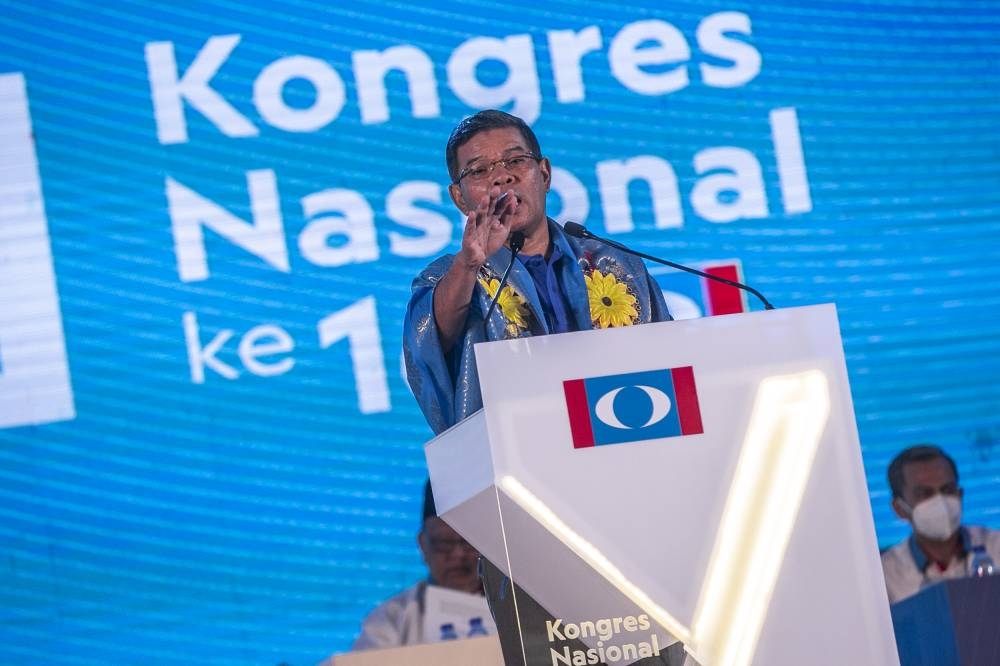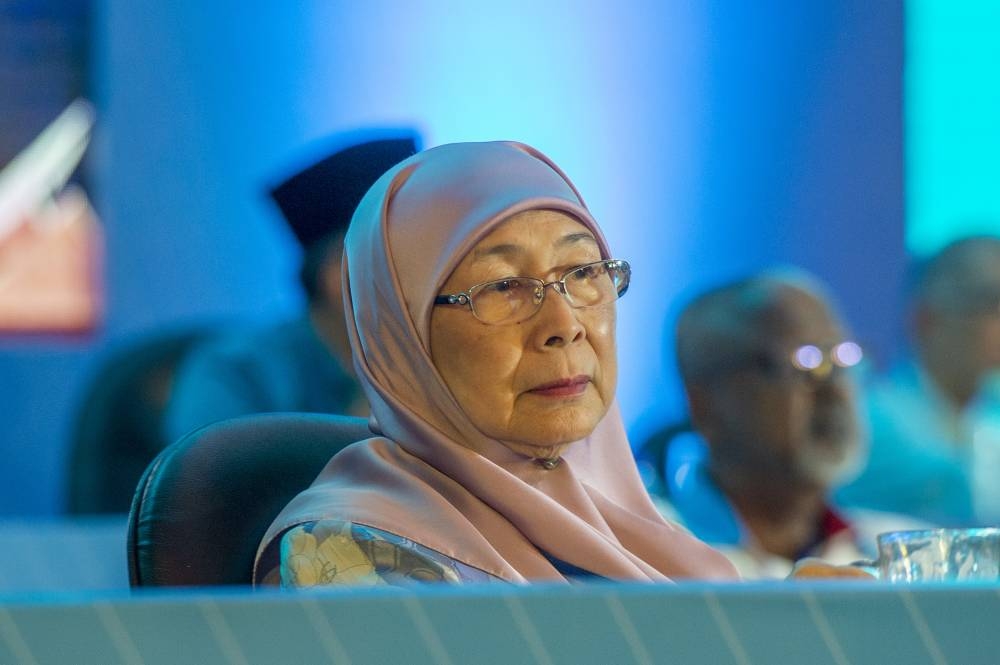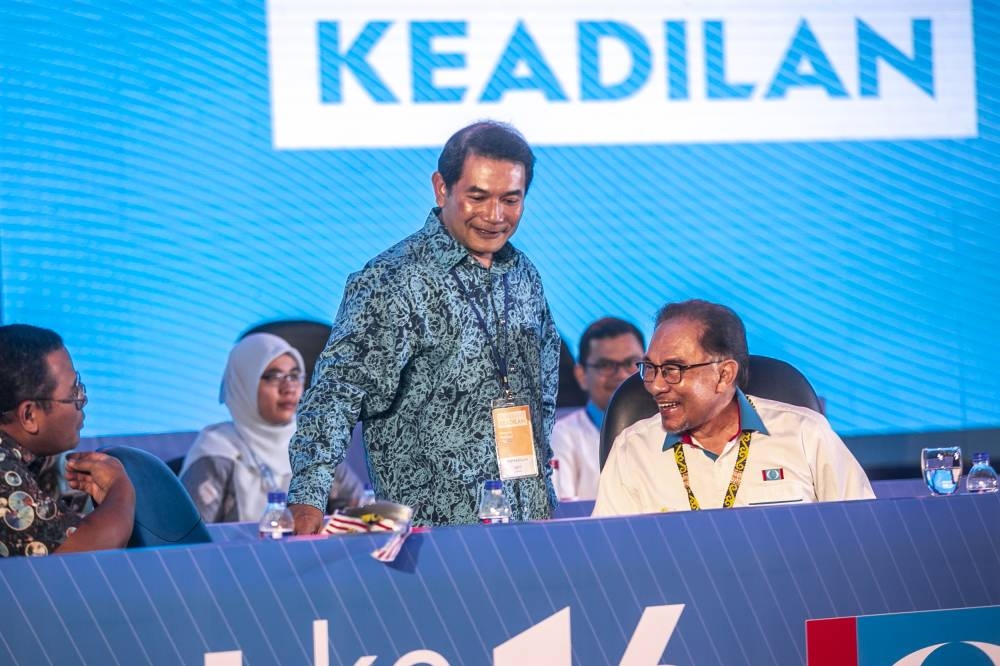KUALA LUMPUR, July 19 — PKR and Pakatan Harapan’s (PH) performance in the 15th general election (GE15) will depend if PKR president Datuk Seri Anwar Ibrahim and his outspoken new deputy Rafizi Ramli can “compromise” and agree upon the best strategies, analysts said.
As PKR declared its intention to remain the cornerstone of the PH coalition, Nusantara Academy for Strategic Research (NASR) senior fellow Azmi Hassan said the party must prove its own unity by agreeing on coherent strategies and avoid further infighting.
Anwar has been pushing for a “big tent” approach for PH and other Opposition parties to band together informally for GE15 whereas Rafizi previously indicated that PH could go for GE15 without resorting to this.
Commenting on Rafizi’s lack of enthusiasm for the “big tent” concept, Azmi said that the former Pandan MP must compromise and be willing to sit down with his party’s PH allies — DAP, Parti Amanah Negara (Amanah) and the United Progressive Kinabalu Organisation (Upko) — to discuss the matter.
“If Rafizi doesn’t want to compromise an inch of this particular concept, then it’s going to very, very difficult for PKR as well as Pakatan Harapan as an Opposition pact, and it will be more difficult and impossible to attract other opposition political parties together with Pakatan Harapan under the ‘big tent’ concept.
“This is because one of the Opposition parties — which is PKR — is so divisive regarding the ‘big tent’ concept or whether who should or should not be working with them,” he said when contacted by Malay Mail.
Previously, DAP secretary-general Anthony Loke and Amanah communications chief Khalid Abdul Samad reportedly expressed their openness to discuss the unification of Opposition parties through a “big tent” approach.

It’s about the best strategy, not about personalities
Sociopolitical analyst Awang Azman Pawi from Universiti Malaya (UM) believe that both Anwar and Rafizi have to be realistic and set their differences aside when it comes to deciding the framework going into the next election.
He told Malay Mail that it will be important for them to be on the same page when the time comes to decide the strategy to face Barisan Nasional (BN), and foresee which approaches are more popular to appeal to the voters.
“On the strategy going into the upcoming general election, I think whether it’s Anwar or Rafizi (they) have to be more realistic on which strategy has more support from the masses.
“Because this is not about Rafizi nor it’s about Anwar, this is more on how to make PKR win (in the next GE) and deciding the strategy as a whole,” he said.
In response to the outgoing PKR secretary-general Datuk Seri Saifuddin Nasution Ismail’s speech at the party congress last weekend that PKR should contest in more seats as the dominant party in PH, Awang agreed with this view as he noted that the party has more supporters and a stronger election machinery than its PH allies.
Awang also said that PKR should be firm in its principles when negotiating with its allies on the allocation of electoral seats to be contested in GE15, and should not be seen as giving in too much to other parties like Amanah.
“In terms of seeking seats to contest in, PKR should not be seen as too relenting especially to Amanah in order to get more wins (for PH) and they have to be realistic for the sake of PKR itself,” he added.

The dynamic team that is just what PKR needs
Reflecting on PKR’s desperation after its poor record for the past few state elections, Universiti Malaysia Sabah’s political analyst Lee Kuok Tiung said Anwar and Rafizi are the dynamic duo which the party needs to revitalise itself back to its glory days.
“We have to accept the fact that the PKR party’s leadership has declined since GE14 and this is due to several factors that include the party’s top leadership,” he said.
He said PKR members need to embrace the call by its advisory council chairman Datuk Seri Dr Wan Azizah Wan Ismail to move past the controversial party election outcome, and to focus on fighting the common political arch-nemesis.
“After suffering heavy defeats in three elections namely Melaka, Sarawak and Johor, perhaps that is the best option for PKR to revitalise to its glory days like the time under (Dr) Wan Azizah’s leadership,” he said.

The ‘dream team’
Oh Ei Sun, Singapore Institute of International Affairs senior fellow, said it is a must for both Anwar and Rafizi to work well together for PKR to show a united party and to be able to win seats in GE15.
“It’s a question of necessity for PKR, which has seen diminishing electoral influence in recent months. For the average voters, if PKR could not even present a harmonious common front from within itself, what more to try to win an election,” he told Malay Mail.
Oh added that it would be even more positive for PKR if Rafizi “is given a freer hand to lead the campaign” as he has “a fresher image” and better election strategies.
Asked whether the Anwar-Rafizi duo would be too divisive or if they would instead complement each other in leading PKR in GE15, Oh said they would have to iron out any differing approaches to secure electoral wins for PKR and by extension the PH coalition.
“They would have to resolve their differences in electoral approaches, if any, soonest, because the general election is likely to be but a few months away, and they have to present a coherent electoral strategy to even just remotely hope to clinch a win,” he said.
While Anwar had previously pushed for a “big tent” approach to unite PH and all other Opposition parties together and Rafizi had been less inclined on such an approach, Oh suggested this was not relevant: “It’s a moot issue, as other parties are keen only if the big tent is led by their respective party leaders. Some, like Dr Mahathir, even explicitly said only if ‘no Anwar’.”
He was referring to Parti Pejuang Tanah Air chairman Tun Dr Mahathir Mohamad.
Oh suggested that the current leadership combination of Anwar and Rafizi may benefit PKR and even PH in terms of voter support in GE15.
“An Anwar-Rafizi combo is like a dream team for PKR, at least for now. This is because Anwar appears to be unwilling to let go of his stranglehold on the party, no matter how unseemly it appears to the common voters. So the refreshing Rafizi could hopefully neutralise a little bit of this negative perception by the voters,” he said, explaining that voters may not favour PH which is supposed to be led by PKR if the voters do not view PKR positively.
The recent three-day PKR national congress saw the official unveiling of the new top two leaders of the party for the 2022-2025 term, namely Anwar who had retained his party president post without any contest and Rafizi who had been elected deputy president after a brief political hiatus.
With most of the party’s central leadership council being those who are seen as aligned with Rafizi, sparks had also flown between Anwar and Rafizi as they made references to each other in their speeches throughout the congress.
The congress also saw what initially appeared to be a cold war — between Rafizi with his stance on rejecting the “big tent” against Anwar who is more diplomatic on the concept — eventually subsiding and seemingly resolved by the end of the congress, as both leaders have since pledged to work together for the benefit of the party.






















